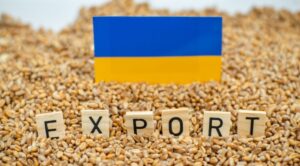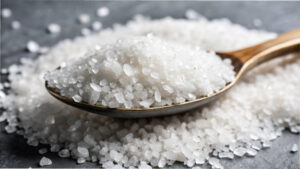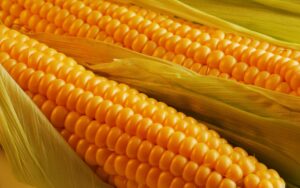
In 2025, Ukraine increased imports of aluminum and aluminum products by 15.3% to $514.098 million. Aluminum exports grew by 22.9% to $152.919 million.
In December, imports amounted to $43.298 million, while exports amounted to $11.805 million.
This is a continuation of the growing trend: in 2024, imports had already increased by 21.7% compared to 2023.
Aluminum is widely used as a structural material. The main advantages of aluminum are its lightness, malleability, corrosion resistance, high thermal conductivity, and the non-toxicity of its compounds. In particular, these properties have made aluminum extremely popular in the manufacture of cookware, aluminum foil in the food industry, and for packaging. The first three properties have made aluminum the main raw material in the aviation and aerospace industries (recently, it has been replaced by composite materials, primarily carbon fiber). After construction and packaging production—aluminum cans and foil—the largest consumer of metal is the energy sector.
For a more detailed overview of global aluminum production from 1970 to 2024, see the video on the Experts Club YouTube channel.

The Kametstal plant, part of the Metinvest mining and metallurgical group (Kamensk, Dnipropetrovsk region) took into account the demands of the Ukrainian and European markets in 2025, expanding its range of continuously cast billets (CCB) by four items and its range of sought-after rolled products by three items.
According to the company, in 2025 Kametstal once again confirmed its leading position among Metinvest’s metallurgical enterprises in terms of the number of new products developed. Of the 11 new types of metal products brought to market, seven are the work of the Kametstal team.
It is specified that the achievements of the steelmakers of the converter shop include four new steel grades: 10U1, 20U, 26G2TR, and S355NL-1N with enhanced requirements for chemical composition, primarily in terms of sulfur and phosphorus content.
The casting of new steel grades into continuously cast billets with a cross-section of 335×400 mm has been mastered at continuous casting machine No. 2, where the reconstruction of electrical equipment was completed last year. This, in particular, contributed to the stabilization of the casting speed and, consequently, to the improvement of the cutting accuracy of billets, minimizing metal waste. The purpose of the new semi-finished products is the manufacture of round rolled products and their further processing into seamless pipes for critical applications.
The rolling mill team offered Ukrainian and European consumers three new product ranges that had not previously been produced at the plant. First and foremost, these are 8-32 mm diameter rebars for the Polish and Romanian markets, the production of which has been mastered on the 400/200 mill. Thanks to certification in accordance with the building standards of these countries, Metinvest has already shipped more than 100,000 tons of B500SP class rebar to Poland in 2025.
The ball mill has mastered the production of 100 mm diameter grinding balls with high surface and volume hardness, which corresponds to the fifth group. By experimentally determining the optimal heat treatment mode after rolling, specialists have achieved stable production of products with increased wear resistance, which is necessary for the stable and efficient operation of the company’s mining and processing plants.
Kametstal is part of the Metinvest Group.

The LNZ Group agricultural holding exported about 2 million tons of agricultural products in 2025, according to the press service of the agricultural holding, citing data from the director of LNZ Export, Volodymyr Humenyuk.
The agricultural holding noted that after acquiring the SEZ, LNZ Group became one of the leaders in oilseed processing, focusing on rapeseed and soybeans. Processed products are also sold on foreign markets, where the company has strengthened its position and established itself in the premium segments.
“About 90% of exports are carried out through the ports of Greater Odessa. Throughout the year, LNZ Group expanded its presence primarily in the EU markets, cooperating with both multinational corporations and local processors in Italy, Spain, the Netherlands, Greece, etc. Products were also supplied to neighboring Poland, Hungary, and Romania, as well as to countries in the Middle East, North Africa, and Asia,” said Gumenyuk.
Roman Franchuk, Director of Agricultural Production at LNZ Group, emphasized that, in general, the past season in the agricultural sector was difficult for LNZ Group due to weather conditions—a cold spring, a cool start to summer, and a prolonged drought reduced yields in the company’s fields in the central region. The situation was better in the Sumy cluster, but harvesting there was complicated by constant attacks from enemy UAVs. In the Vinnytsia region, where it rained, technical crops were harvested with high yields. In the Rivne cluster, due to prolonged rainfall and late soybean vegetation, harvesting is still ongoing, while early grains, in particular wheat, yielded about 6 t/ha.
The holding achieved planned yields on 200 ha of vegetable crops thanks to drip irrigation. They grew onions, peppers, tomatoes, rhubarb, cauliflower, and broccoli. Next year, they plan to expand the area under vegetables and add carrots and table beets. Raspberries and strawberries also showed high yields, and the area under them will also be increased.
“Taking into account the season, the company has revised its crop structure for 2026: it has increased the area under rapeseed to 11,000 hectares, under winter wheat to 17,000 hectares (12,000 hectares a year earlier), and has also expanded the area under peas to 3,000 hectares (usually 500 hectares). The area under sugar corn for the needs of the TEVITTA freezing plant remained unchanged at 750 hectares,” Franchuk summed up.
LNZ Group is a vertically integrated agricultural holding company with its central office in the village of Lebedyn, Cherkasy region. It specializes in the cultivation of grain, industrial, and berry crops, seed production, as well as the distribution of plant protection products (TM DEFENDA) and seeds (TM UNIVERSEED).
The holding’s land bank covers more than 80,000 hectares in the Cherkasy and Sumy regions. It has a network of elevators with a total capacity of about 170,000 tons, as well as modern storage facilities with an area of more than 50,000 square meters and refrigeration complexes with a capacity of 8,000 tons.
LNZ Group has a number of processing plants. The Lebedyn Seed Plant (corn division) specializes in the full cycle of corn seed processing with a capacity of up to 330 tons/day. The multifunctional seed plant cleans and calibrates wheat, soybeans, and sunflowers (up to 200 tons/day). The oilseed processing plant specializes in the production of soybean and rapeseed oil and meal.
The Tevitta frozen food plant specializes in flash freezing berries, vegetables, and fruits (IQF technology) with a capacity of 10,000 tons per year. The Shpola food factory (TM “Zhayvir”) produces snacks, halva, kozinaki, etc.
The main beneficiary of the group is Dmytro Kravchenko.

The Cabinet of Ministers of Ukraine has abolished quotas on the export of table salt for 2026, according to Government Resolution No. 1795 of December 31 on the list of goods whose export and import are subject to licensing and quotas.
According to the document, there will be no quotas on the export of table salt in 2026, whereas in previous periods, exports of this product were limited by zero quotas.
The resolution is published on the government’s website.

This week, the Ukrainian market continued to see a gradual decline in feed corn prices on a FOB Black Sea basis, according to the information and analytical agency APK-Inform.
“Prices remained under pressure throughout the week due to slow sea export rates as a result of systematic attacks by the Russian Federation on Ukraine’s port and energy infrastructure, which led to shipment disruptions, which, in turn, restrained importers’ demand,” analysts said.
At the same time, they noted that corn remains the most active export crop for Ukraine, but this has not been able to offset the factors putting pressure on prices.
Indicative bid/ask prices for feed corn with delivery in December-January from Black Sea ports fell by 1-3 USD/ton in less than a week under the influence of these factors to 210-218 and 214-222 USD/ton, respectively, according to APK-Inform.